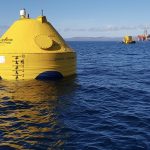TAP boss: “privatisation will guarantee the country’s interests”
The CEO of TAP, Christine Ourmières-Widener says she is confident that the airline’s privatisation process will “safeguard all of the country’s interests”.
The airline executive charged with restructuring TAP and returning the airline to profit after decades of losses, spoke to the Portuguese news agency Lusa in New York where she was presenting the advantages of the ‘Portugal Stopover’ programme to the local market.
Christine Ourmierès-Widener sidestepped questions about TAP’s privatisation process, saying that it was for the Government to answer such questions since “the process will be managed by the company’s shareholders”. (TAP is a public company)
However, she emphasised: “I am certain that all the interests of the country will be safeguarded”.
Regarding the ‘Portugal Stopover’ Christine Ourmières-Widener said the US market which is growing was very important to the airline and had led to increasing the number of flights this summer.
The event to present the new advantages of the ‘Portugal Stopover’ programme for the many stakeholders took place on Tuesday at the Pestana Park Avenue in downtown Manhattan and was also attended by the Secretary of State for Internationalisation, Bernardo Ivo Cruz, and the Consul-General in New York, Luisa Pais Lowe.
“We are attracting a lot of US investment to Portugal, we have a very good relationship with the US historically (…) and this TAP programme only enhances this when it comes to attracting overseas investment and wants to attract tourists to Portugal, providing another means for Portugal to become even better known in the United States”, said Bernardo Ivo Cruz.
TAP mismanagement?
Meanwhile, the airline’s senior management will shortly have to answer to a parliamentary commission into how the airline has been managed. It will sit for the first time today (Wednesday, 22 February).
On the agenda will be €500,000 payout to a former director Alexandra Reis who spent less than two years in the job after resigning over alleged differences with the CEO, Christine Ourmières-Widener.
The commission will also look into the way TAP’s directors have being running the airline, as well as evaluating the political responsibilities of the government towards TAP which has so far received over €3Bn of public funding.
It will be the second parliamentary inquiry into the airline in 23 years at a time when TAP has been undergoing a painful restructuring process with staff and salary cuts, and rows with unions over these and general working conditions at the national carrier.
The TAP CEO will be quizzed on the quality of the information she gave to the State on decisions that could have harmed the interests of the company, or on the salaries paid to directors and senior management.
Christine Ourmières-Widener will also likely be quizzed over the amount of bonus she will receive if TAP’s restricting plan is successfully concluded. Said to be between €2.2 million and €3 million, she had already refused to divulge the amount to parliament’s Economy and Public Works Commission in January.
It is also probable that TAP’s Board Chairman Manuel Beja and its CFO, Gonçalo Pires will also be called to give account.
A dodgy capitalisation deal?
The commission will also want to scrutinise the way the airline was run between 2020 and 2022 as a public company, as well as passing a fine tooth comb through the company’s privatisation at the end of 2025 which resulted in 61% of the airline placed into the hands of the private consortium Atlantic Gateway whose shareholders were Brazilian-US airline mogul David Neeleman and entrepreneur Humberto Pedrosa.
Regarding these two shareholders, a big question mark hangs over the decision to change a leasing contract for a dozen aircraft in exchange for a contract for 53 aircraft that may have cost the company tens of millions of euros.
The controversial deal might imply that the US$226.75 million that Atlantic Gateway used in 2015 to capitalise the airline company came directly from Airbus as has been intimated by the law firm Serra Lopes Cortes Martins & Associates.
The money may have been given to offset a leasing deal for the 53 Airbus state-of-the-art NEO medium and long-haul aircraft, which at the time Neeleman argued were more cost-effective in the long term for TAP and necessary to expand and improve its routes to Brazil, Canada, the US and Africa.
But if the monies were directly or indirectly used to pay for David Neeleman’s capitalisation of the company, basically meaning TAP paid for its own private capitalisation, it would have violated the Commercial Companies Code. That, however, would be difficult to legally prove.
Image Lusa: José Gulão










